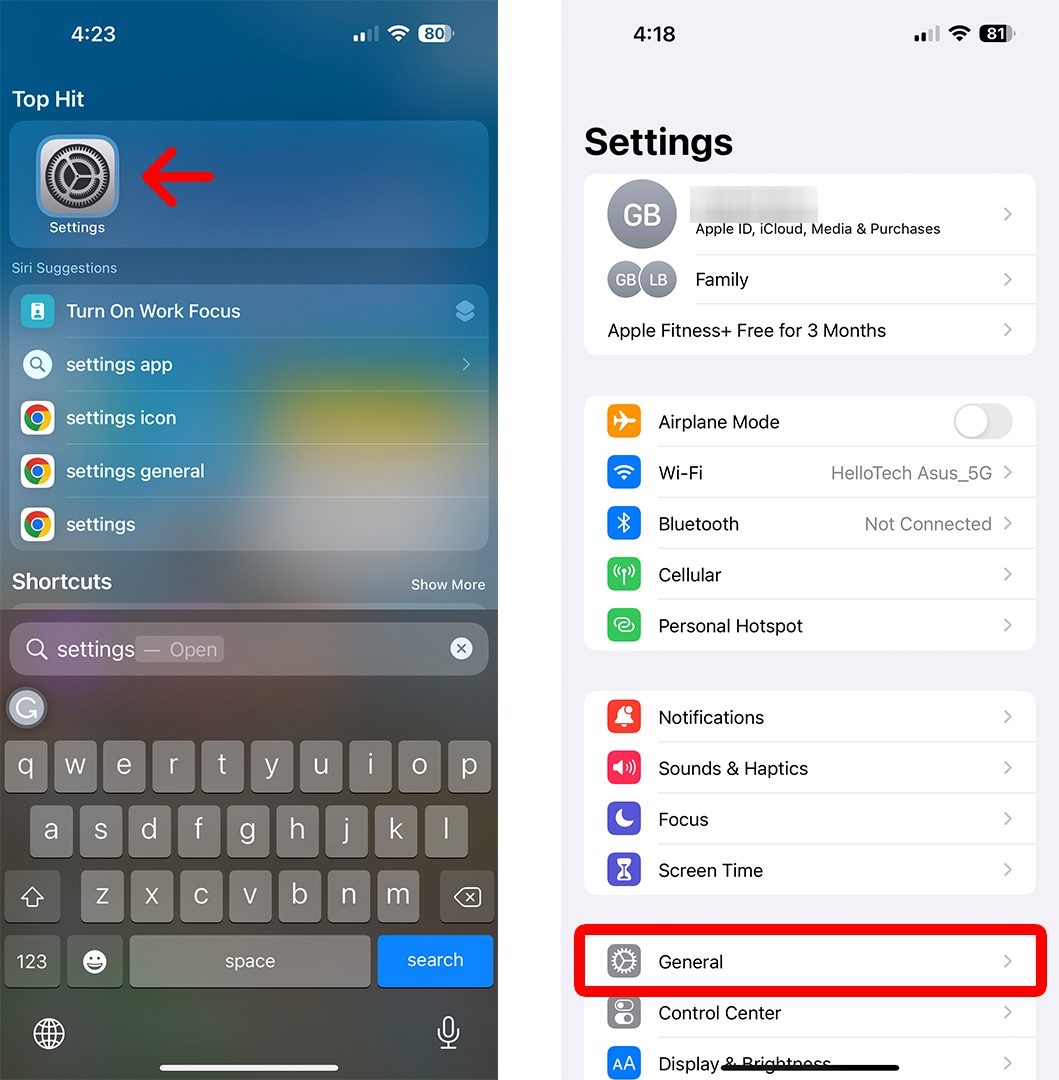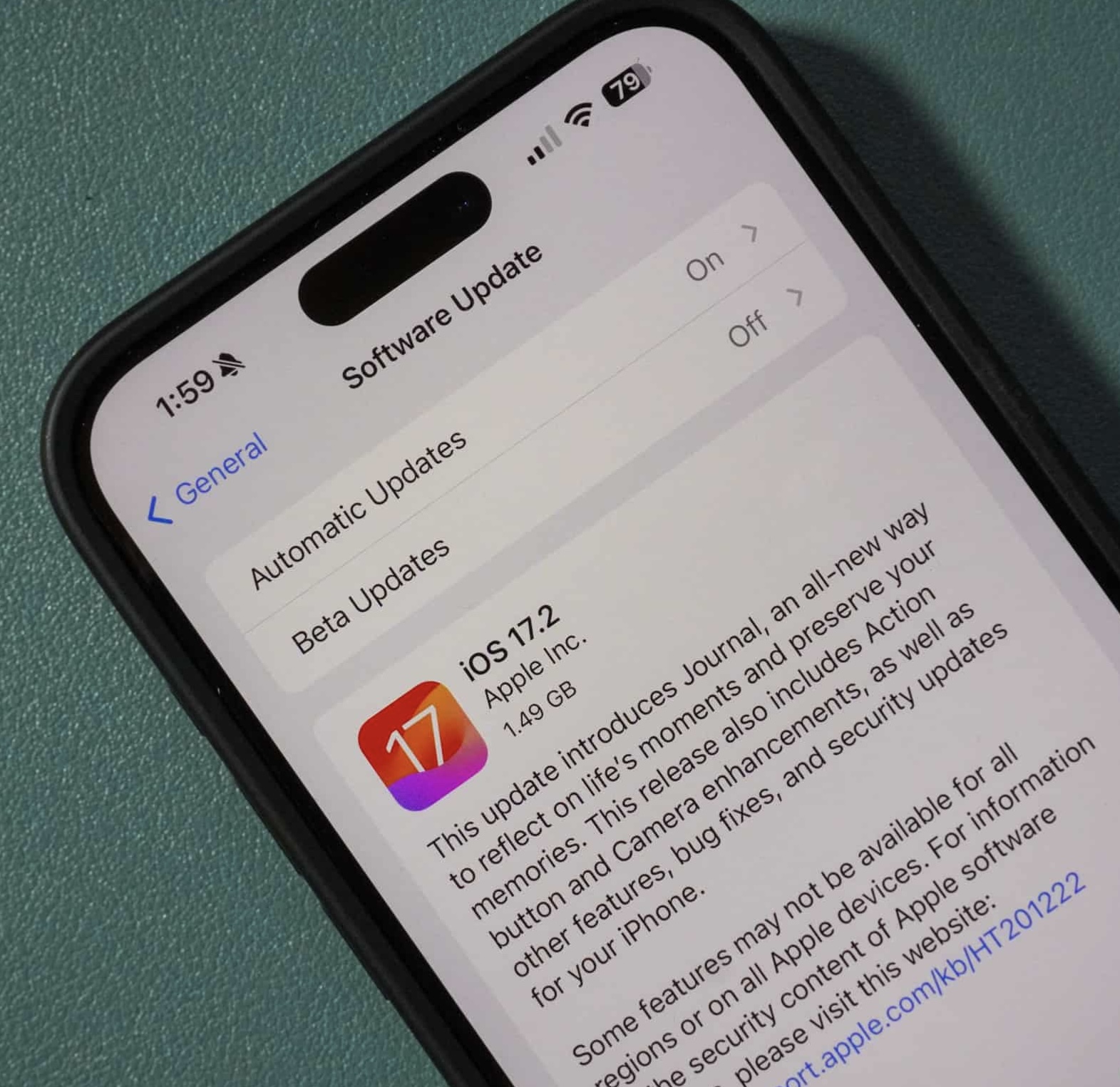In an unexpected development, Apple has rolled out iOS 17.2.1, a crucial update for iPhone users. This release comes shortly after the launch of iOS 17.2 earlier this month, marking a rare instance of an incremental update by the tech giant.
 While specific details about the update’s content are sparse, Forbes has reported that iOS 17.2.1 is primarily focused on providing essential bug fixes. Apple has not disclosed any specific security vulnerabilities addressed in this update. However, the company’s emphasis on the update being “recommended for all users” signals its importance.
While specific details about the update’s content are sparse, Forbes has reported that iOS 17.2.1 is primarily focused on providing essential bug fixes. Apple has not disclosed any specific security vulnerabilities addressed in this update. However, the company’s emphasis on the update being “recommended for all users” signals its importance.
The update, accessible through a link at the bottom of the update notification, leads to an Apple support page. This page suggests that iOS 17.2.1 might be part of Apple’s security updates or a Rapid Security Response measure.
However, another angle to consider is the recent spate of spyware attacks targeting iPhones. This update could potentially patch a critical security flaw, although Apple has historically been reticent about disclosing such vulnerabilities. An Apple spokesperson has stated that the update contains nothing beyond what is mentioned in the release notes, which do not highlight any security fixes.
Regardless of the underlying reasons, iPhone users, especially those with models XS and later, are strongly encouraged to install iOS 17.2.1 promptly.
To check if your iPhone is eligible for the update, navigate to ‘Settings,’ then ‘General,’ and finally ‘Software Update.’ This update is a crucial step in ensuring your device’s optimal performance and security.


About Dr. Tom
Thomas Hyslip currently serves as an Assistant Professor of Instruction in the Department of Criminology, University of South Florida teaching exclusively in the online Master of Science in Cybercrime program. The program is a unique blend of criminology, digital forensics, cybercrime investigations, and incident response course work.
Prior to USF, Dr. Hyslip worked as a Special Agent with the Defense Criminal Investigative Service (DCIS) and United States Secret Service for 23 years. While assigned to the DCIS Southeast Field Office, Dr. Hyslip led an undercover operation dedicated to targeting and dismantling the most egregious cyber-criminal enterprises. Dr. Hyslip worked with the National Security Agency, and the United States Cyber Command to identify and infiltrate cyber-criminal organizations targeting the DoD.
In 2012, Dr. Hyslip was promoted to lead the newly created Department of Defense, Defense Criminal Investigative Service (DCIS), Cyber Resident Agency. He led daily procedural and operational activities of special agents in eight locations across the eastern United States responding to computer intrusions within the DoD and the Defense Industrial Base. His office also provided computer forensic support to all DCIS offices and investigations within the Eastern United States, Europe, Africa and Southwest Asia. During this time, Dr. Hyslip worked proactively to target international Cyber-Crime groups and worked undercover to penetrate underground cyber-crime organizations which resulted in the dismantlement of the WebStresser DDoS platform in 2018; the ExoStresser DDoS platform in 2019; and the PowerStresser DDoS platform in 2020.
Dr. Hyslip is also a retired U.S. Army Colonel. His last assignment was as a Historian with the U.S. Army Center of Military History. He was previously assigned to the Office of the Surgeon General as an Environmental Engineer, and as an Assistant Professor of Preventive Medicine at the F. Edward Hébert School of Medicine, Uniformed Services University of the Health Sciences. COL Hyslip has a mix of active duty and reserve assignments spanning over 27 years including assignments with the US African Command, Office of Inspector General, the Department of Defense, Office of Inspector General, and the US Army Reserve Information Operations Command. In 2005, COL Hyslip deployed to Iraq with the 306th Military Police Battalion and earned a Bronze Star, Purple Heart, and Combat Action Badge.
Dr. Hyslip earned his Doctor of Science degree in Information Assurance from Capitol College, Master of Science degree in Technology Systems from East Carolina University, and his Bachelor of Science degree in Mechanical Engineering from Clarkson University. Tom and his wife Susan live in Tega Cay, SC with their daughter Reagan.











